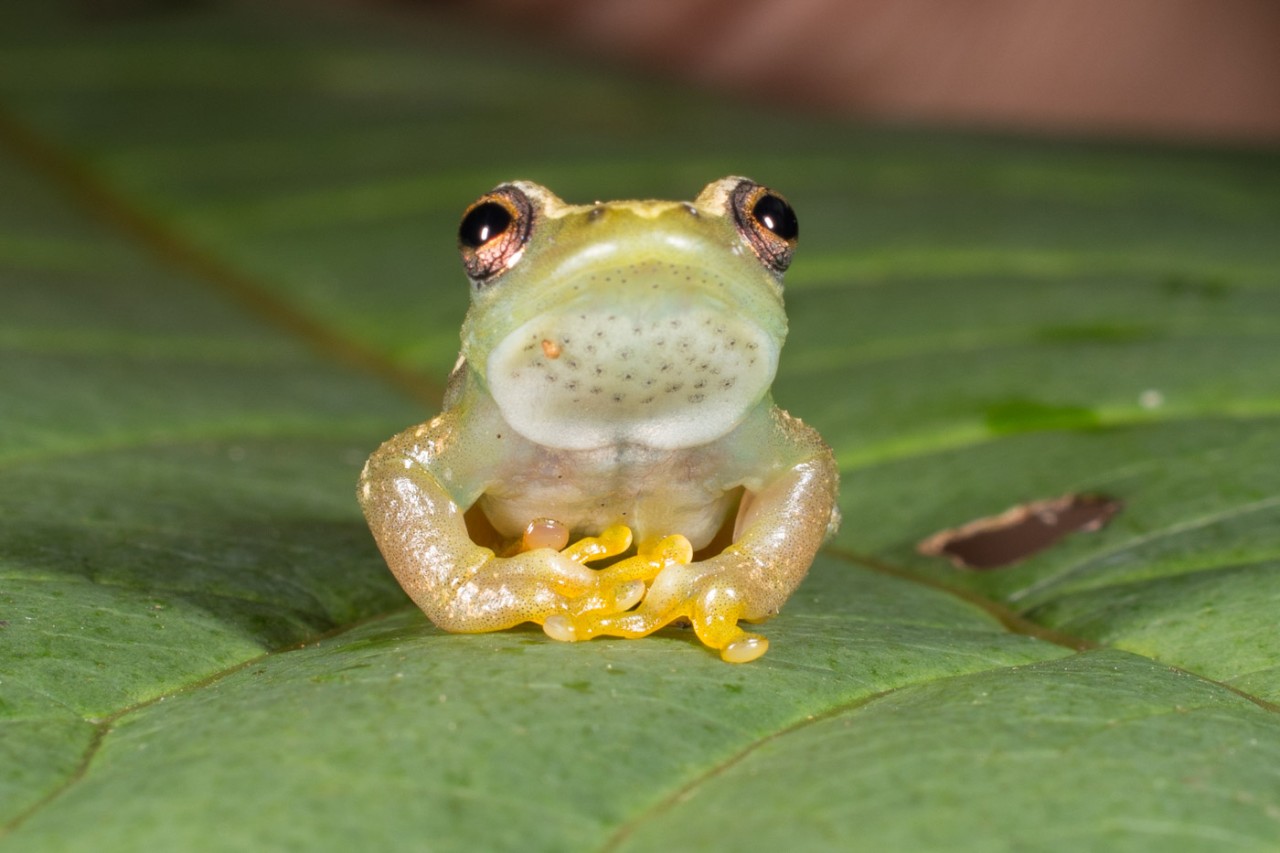
BBC: Scientists discover frog that can't croak
International media reports on new species identified by UC biologist
The BBC reported on the astonishing discovery by researchers at the University of Cincinnati of a new species of voiceless frog in Tanzania's Ukaguru Mountains.
The Ukaguru spiny-throated reed frog does not croak, sing or ribbit. Found in Tanzania’s Ukaguru Mountains for which it is named, Hyperolius ukaguruensis is among the few frogs around the world that do not vocalize to other frogs.
The new species belongs to a group of “spiny throated” reed frogs, which true to their name have tiny spines on the male’s throat. Since they can’t rely on sound to recognize members of their species, they might use spines instead.
Researchers described the new species in the journal PLOS ONE.
“The male frogs don't call like most other frogs do. We think they may use the spine as something like Braille for species recognition,” said study lead author Lucinda Lawson, a conservation biologist and assistant professor of research in UC's College of Arts and Sciences.
“Without a call, they need some other way to recognize each other.”
Lawson published the study with co-authors Christoph Liedtke, Simon Loader and John Lyakurwa.
Featured image at top: Researchers found a new species of spiny-throated reed frog. Photo/Christoph Liedtke
More UC Biology in the news

UC assistant professor Lucinda Lawson worked with an international team on an amphibian survey in Tanzania. Photo/Joseph Fuqua II/UC
- Eurasia Review: Voiceless frog discovered in Tanzania
- Prensa Latina: New croakless frog discovered in Africa
- Earth.com: Voiceless frog found in Africa
Related Stories
Love it or raze it?
February 20, 2026
An architectural magazine covered the demolition of UC's Crosley Tower.
Social media linked to student loneliness
February 20, 2026
Inside Higher Education highlighted a new study by the University of Cincinnati that found that college students across the country who spent more time on social media reported feeling more loneliness.
Before the medals: The science behind training for freezing mountain air
February 19, 2026
From freezing temperatures to thin mountain air, University of Cincinnati exercise physiologist Christopher Kotarsky, PhD, explained how cold and altitude impact Olympic performance in a recent WLWT-TV/Ch. 5 news report.
